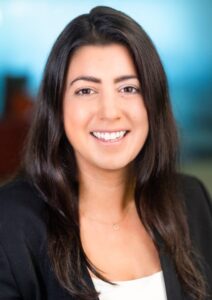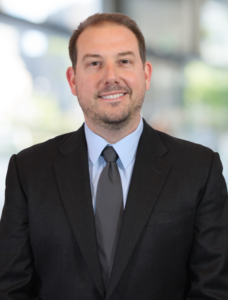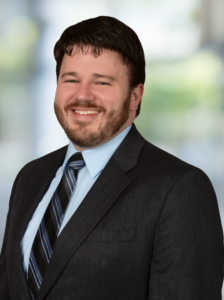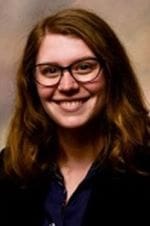Not Your Grandfather’s Corn Maze – Regulatory and Legal Responses to Challenges Faced by Agriculture Due to PFAS Contamination
Topic:
Per- and polyfluoroalkyl substances, better known as “PFAS”, are a diverse class of thousands of synthetic chemicals first manufactured in the 1940s. PFAS are commercially desirable but very challenging to manage once they are introduced into the environment because of their thermal and chemical stability, water-resistance, and surfactant properties. Once classified as “emerging contaminants,” data recognizing PFAS’ widespread use in industry and presence in the environment continues to accumulate. PFAS uses are as varies as applications in cosmetics, stain resistant coatings on fabrics, fire-fighting foam. The widespread commercial use of PFAS has resulted in the presence of PFAS in agriculturally significant materials, including in irrigation water, biosolids, and composts. PFAS have also been identified in agricultural products (e.g., milk, orange juice). Furthermore, studies have linked exposure to certain PFAS compounds with adverse health outcomes, including risk of some cancers and reproductive issues, although significant uncertainty and a lack of consistent data remains.
Perceived PFAS health risks and their extensive use led regulators to enact and propose a variety of guidelines and legislation aimed at reducing exposure. Although rulemaking is underway, PFAS are not yet subject to comprehensive regulation under federal environmental statutes. Some states, however, have developed regulations resulting in a patchwork of PFAS standards nationally. Litigation related to environmental, toxic tort, and product liability suits is beginning to unfold in this landscape of PFAS regulatory and scientific uncertainty, leading to billions in settlements to date with much more litigation expected to come.
During this webinar, attendees will hear from a panel of leading legal, environmental, and economic experts with a deep understanding of PFAS and the potential impacts on agriculture and food processing industries:
- Learn the basics of PFAS chemistry and fate & transport, focusing particularly on how PFAS intersect with agriculture
- Get acquainted with regulatory compliance challenges facing agriculture, including a brief federal overview and an overview of various state proposed and enacted legislation
- Learn the types of PFAS litigation involving agricultural industries, economic impacts of federal regulation, and potential consequences of contamination for property owners
This webinar will provide a general framework to understand the wide-ranging implications of PFAS and will focus on the aspects of regulation and risk specifically relevant to agriculture and the food industry.
NALC Staff Attorney Brigit Rollins will moderate this webinar.
Time and Date:
Wednesday, October 18, 2023
Noon – 1 p.m. (EDT)
11 a.m. – Noon (CDT)
Participation:
Presenters:
 Kyla Kaplan is an attorney at Olsson Frank Weeda Terman Matz PC (OFW Law). She is a regulatory attorney focused on issues impacting the food, agriculture, and drug industries. Her work encompasses representing companies and providing advice on topical federal concerns, such as PFAS, before the FDA, USDA, FTC, and other federal agencies. Kyla is a frequent speaker on issues relevant to the food supply chain and she teaches a food and agricultural law course as and Adjunct Professor at George Mason Antonin Scalia Law School. Kyla received her B.S. (University of Wisconsin-Madison), J.D. (University of Maryland), and Master of Law (LL.M) (University of Arkansas).
Kyla Kaplan is an attorney at Olsson Frank Weeda Terman Matz PC (OFW Law). She is a regulatory attorney focused on issues impacting the food, agriculture, and drug industries. Her work encompasses representing companies and providing advice on topical federal concerns, such as PFAS, before the FDA, USDA, FTC, and other federal agencies. Kyla is a frequent speaker on issues relevant to the food supply chain and she teaches a food and agricultural law course as and Adjunct Professor at George Mason Antonin Scalia Law School. Kyla received her B.S. (University of Wisconsin-Madison), J.D. (University of Maryland), and Master of Law (LL.M) (University of Arkansas).
Ryan Stifter is a Principal with Roux located in the San Francisco Bay area. Ryan’s expertise with applied economics focuses on valuing changes in the environment and natural resources arising from hazardous substances exposure, use and allocation, climate change, and regulatory action affecting human uses and health, commercial enterprise, and ecosystems. Ryan is a frequent speaker at conferences and continuing education seminars on the economic risks and impact of regulatory, legal, and market responses to PFAS contamination. He earned B.S. (Managerial Economics) and M.S. (Agricultural and Resource Economics) degrees from the University of California-Davis and has been employed for the past 18 years with private firms providing economic consulting and environmental and natural resource management.
focuses on valuing changes in the environment and natural resources arising from hazardous substances exposure, use and allocation, climate change, and regulatory action affecting human uses and health, commercial enterprise, and ecosystems. Ryan is a frequent speaker at conferences and continuing education seminars on the economic risks and impact of regulatory, legal, and market responses to PFAS contamination. He earned B.S. (Managerial Economics) and M.S. (Agricultural and Resource Economics) degrees from the University of California-Davis and has been employed for the past 18 years with private firms providing economic consulting and environmental and natural resource management.
Chase Gerbig is a Principal Engineer in Roux’s Burlington, Massachusetts office with expertise in the fundamental understanding of environmental systems and the practical design and implementation of engineering solutions. He has over fifteen years of experience in environmental science and engineering, including expertise in environmental chemistry and geochemical modelling, site investigation and remediation, evaluation of the feasibility of remedial alternatives, remedy design, and compliance with state and federal environmental programs. As a practicing engineer, he has remediated soil, sediment, groundwater, and air impacts associated with a wide range of chemicals (e.g., petroleum, chlorinated solvents, PAHs, and metals). Dr. Gerbig also works with numerous law firms on environmental-related litigation matters where he has provided both underlying and testifying expert services that address a spectrum of litigated topics, including timing of contaminant releases, evaluation of the necessity and reasonableness of past response action costs, estimation of future response action costs, and determination of equitable allocation of response action costs.
understanding of environmental systems and the practical design and implementation of engineering solutions. He has over fifteen years of experience in environmental science and engineering, including expertise in environmental chemistry and geochemical modelling, site investigation and remediation, evaluation of the feasibility of remedial alternatives, remedy design, and compliance with state and federal environmental programs. As a practicing engineer, he has remediated soil, sediment, groundwater, and air impacts associated with a wide range of chemicals (e.g., petroleum, chlorinated solvents, PAHs, and metals). Dr. Gerbig also works with numerous law firms on environmental-related litigation matters where he has provided both underlying and testifying expert services that address a spectrum of litigated topics, including timing of contaminant releases, evaluation of the necessity and reasonableness of past response action costs, estimation of future response action costs, and determination of equitable allocation of response action costs.
Moderator:
Brigit began her life in Sonoma County, in the heart of California’s wine country. Growing up, she was surrounded by small farms, dairies, and wineries, which ultimately led to a passion for agriculture and the environment. She attended Sonoma State University where she earned a Bachelor of Arts in environmental studies, and a minor in studio arts. While at Sonoma State, Brigit studied different types of agricultural methods and how those methods could be used to promote environmental sustainability. After graduating from Sonoma State in 2015, she started as a law student at Lewis & Clark Law School in Portland, Oregon. While at Lewis & Clark, she worked as a student clerk for the Western Resources Legal Center, where she worked on cases assisting small ranches, farms, and municipalities. During her time at Lewis & Clark, she also interned with the California Farm Bureau Federation, and worked as a law clerk for the Sacramento-based environmental law firm Somach Simmons & Dunn. While at the California Farm Bureau, Brigit focused on Environmental Species Act issues and water law issues, as well as issues specific to California. While at Somach Simmons & Dunn, Brigit expanded her work on water law and participated in work involving federal Indian law. On campus, Brigit was on the board of Lewis & Clark’s Food & Ag Law Society and served as a student member of the ABA Public Lands Committee. She is licensed to practice law in Oregon.
farms, dairies, and wineries, which ultimately led to a passion for agriculture and the environment. She attended Sonoma State University where she earned a Bachelor of Arts in environmental studies, and a minor in studio arts. While at Sonoma State, Brigit studied different types of agricultural methods and how those methods could be used to promote environmental sustainability. After graduating from Sonoma State in 2015, she started as a law student at Lewis & Clark Law School in Portland, Oregon. While at Lewis & Clark, she worked as a student clerk for the Western Resources Legal Center, where she worked on cases assisting small ranches, farms, and municipalities. During her time at Lewis & Clark, she also interned with the California Farm Bureau Federation, and worked as a law clerk for the Sacramento-based environmental law firm Somach Simmons & Dunn. While at the California Farm Bureau, Brigit focused on Environmental Species Act issues and water law issues, as well as issues specific to California. While at Somach Simmons & Dunn, Brigit expanded her work on water law and participated in work involving federal Indian law. On campus, Brigit was on the board of Lewis & Clark’s Food & Ag Law Society and served as a student member of the ABA Public Lands Committee. She is licensed to practice law in Oregon.
Brigit began her work at the Center as a research fellow during her second year of law school. As a research fellow, Brigit worked on a wide variety of agricultural law topics ranging from liability issues to the new frontier of lab-grown meat. In 2019, Brigit graduated from Lewis & Clark and joined the Center full-time. At the Center, her primary area of research and scholarship is environmental law as it intersects with agriculture. She maintains an interest in promoting sustainability and environmental health through agriculture and resource use.
Research & Materials:
Background – Gluge et al 2020_An overview of the uses of PFAS
Biosolids – Cjzakowski 2010_OH Biosolids Application Study
Biosolids – EPA 2000_Land-application-biosolids-factsheet
Biosolids – EPA 2018_OIG Report on Biosolids
CERCLA – Excerpt_EWG Brief 2019-09-18